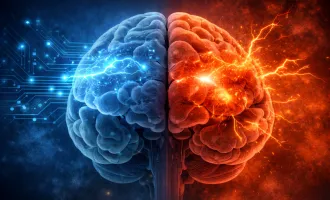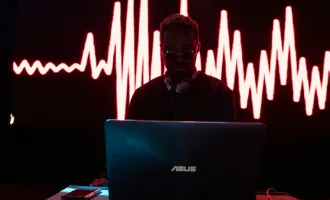The Morning After: Science in a Trump Administration
If you were to ride the D.C. metro the morning after the election, you would have been overwhelmed with a tense, eerie silence that pervaded the mood of the town.
This type of distress and strong emotion permeated throughout the country.
People were rightfully upset about new policy that could negatively affect immigration, health care, women’s health, underprivileged communities, and so much more.
The UCSF administration released multiple statements explaining how the inclusive nature of the school would not change, and Synapse published several stories about various aspects of the new administration.
These range from individual stories of shock and outrage to collective responses to administrative appointments.
With just a few days left until inauguration, we want to focus on how the Trump administration could affect the scientific community, and answer the nagging question: is president-elect Donald Trump anti-science?
This seems like a fairly simple question, but it’s not. Mr. Trump rarely talked about science or scientific issues during his campaign. When pressed, however, his statements were not altogether encouraging.
During a radio interview with Michael Savage back in October of 2015, Trump used the word “terrible” in a vague statement describing corruption in the NIH, or perhaps, in describing the NIH itself.
Trump has also repeatedly hedged on climate change, going so far as to suggest that it is a conspiracy manufactured by the Chinese. Additionally, he continues to ignore evidence that autism is not linked to vaccinations.
This overt denial of scientific fact demonstrates a quality we saw over and over again in his campaign rhetoric: a complete disregard for evidence-based decision making.
While this is a discouraging quality for the leader of the free world to have, it does not de facto show that Trump’s policies will negatively impact the scientific community.
In speculating about concrete changes a new administration might make, a Nature News article highlighted Trumps’ repeated statements that he would repeal all of President Obama’s executive orders.
One of Obama’s orders, issued back in 2009, authorized the use of embryonic stem cells in research. While Trump has not commented on this specific order, conservatives are traditionally opposed to the use of embryonic stem cells, and the repeal of this order would come at a high price for biomedical science.
In an attempt to predict how a Trump administration would change the scientific enterprise, the American Association for the Advancement of Science (AAAS) held a webinar panel titled, “After the Election: What now for Science Funding and Policy.”
The overall tone of the panelists was cautionary, and they were careful not to make bold predictions. With an emphasis on the importance of evidence-based policy decisions, the panelists discussed how it would be difficult for the new administration to reverse all of the progress made in climate change and science funding due to the slow, cyclical nature of government work.
According to the CEO of AAAS, Rush Holt, there is additional reassurance in the fact that, “The public understands the value of science and technology… at least sometimes.”
Because Trump has few strong opinions on science policy issues, the best way to analyze potential future policy may be to look at the people he surrounds himself with.
His vice-president, Governor Mike Pence, has a profoundly strong anti-science track record. He is a climate change denier, a young-earth creationist, and he is opposed to all embryonic stem cell research. This is in addition to writing a tragically misguided op-ed that downplayed the harmful effects of smoking.
Pence is just one of many in science-denial on the newly minted list of Trump appointees. Others include, but are not limited to, the EPA appointment Scott Pruitt and Secretary of Education Betsy DeVos.
Pruitt is a prominent climate science skeptic, leading a charge against the alleged overreach and overregulation by the very agency he will now direct. One can start to sense a theme, as most of Trump’s appointees who are charged with helping the environment deny the most prominent science around climate change.
Betsy Devos, the nominated secretary of education, is a fundamentalists Christian who has admitted to wanting Intelligent Design to be taught in the classroom. Despite this, many believe she will focus more on big picture issues such as school vouchers, and avoid minutia such as biology curricula.
In addition to considering the people with whom Trump has surrounded himself, we can also examine the blank spaces in his appointment roster. In particular, there is no word on either the director of the NIH or the head of the Office of Science and Technology Policy (OSTP).
While it is standard for a president to make these appointments later in the first year of the presidency, the uncertainty is a point of anxiety within the scientific community.
Mr. Trump recently met with fellow vaccine skeptic Robert Kennedy Jr., a radio host and prominent environmental activist, to talk about vaccines. Trump asked Kennedy to “chair a commission on vaccination safety and scientific integrity.”
As the scientific community does a collective facepalm, concern continues to rise as a vaccine skeptic becomes Trump’s cornerstone of “scientific integrity.”
With the link between childhood vaccinations and Autism disproven many times over, this act sets a worrisome scene for a Trump administration that will be overtly anti-science.


